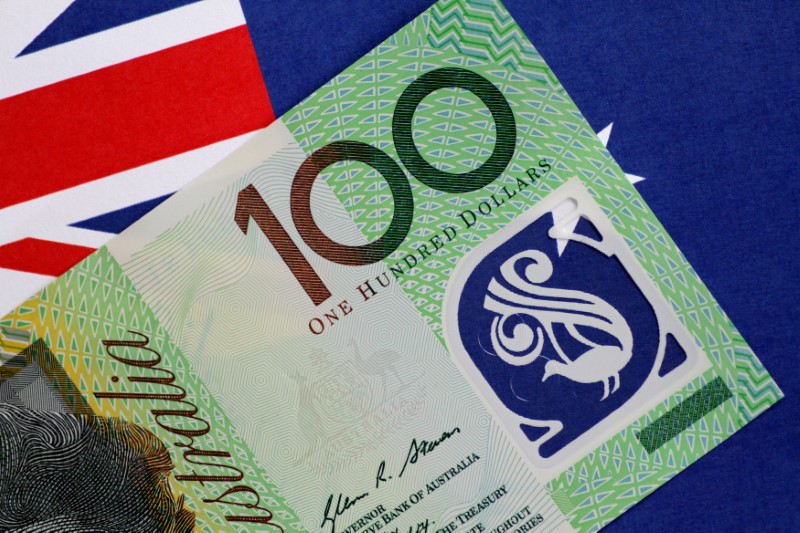Investing.com - The Aussie edged higher in Asia on Tuesday with central bank minutes ahead in an otherwise light data day with North Korea however still a potential potent factor on sentiment.
Later the Reserve Bank of Australia will release the minutes of its August meeting and held at a record low 1.50%.
The U.S. dollar index, which measures the greenback’s strength against a trade-weighted basket of six major currencies, was last quoted up 0.38% to 93.34.
Overnight, the dollar remained broadly higher against the other major currencies in subdued trade on Monday, as markets continued to digest Friday’s U.S. inflation data and as geopolitical tensions between the U.S. and North Korea seemed to die down.
Trading was expected to remain quiet with no major U.S. economic reports set to be released throughout the day.
The greenback recovered from losses posted on Friday after the U.S. Commerce Department said consumer prices rose less-than-expected last month. A separate report released a day earlier showed that producer price inflation and its core reading both unexpectedly declined in July.
The weak data was seen as lowering chances that the Federal Reserve will stick to its plans for a third interest rate hike this year.
Demand for the safe-haven yen and Swissie eased after U.S. Secretary of Defense Jim Mattis and Secretary of State Rex Tillerson both wrote that the U.S. administration would continue to seek diplomatic resolutions with Pyongyang.
In a commentary published in the Wall Street Journal on Sunday, the two men said that "the U.S. has no interest in regime change or accelerated reunification of Korea."
Chinese President Xi Jinping on Saturday called for a peaceful resolution to the North Korean nuclear issue, and urged all sides to avoid words or action that raise tensions.
In Japan, data on Monday showed that the country’s economy grew by 1.0% in the second quarter or 4.0% in annualized terms, which was higher than the 2.5% expected.
The single currency came under pressure after data earlier showed that industrial production in the euro zone fell 0.6% in June, more than the expected 0.5% slip.
